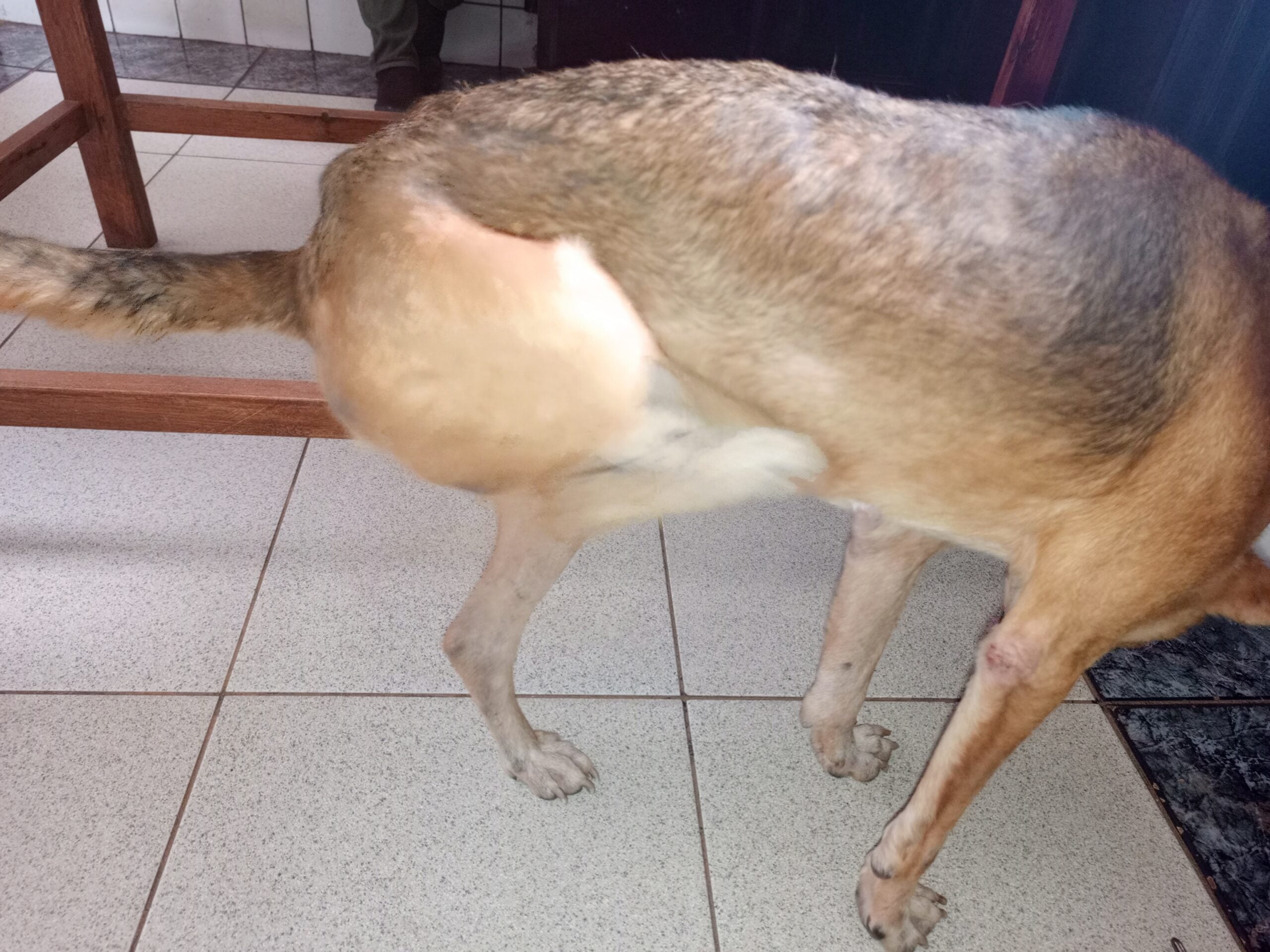
Why is my dog constantly scratching and biting himself?
It’s extremely unpleasant for all pet parents to see their gorgeous pets scratch constantly.
Scratching is a sign of discomfort that results from irritation, pain, or disorder in any of the body parts.
It’s one of the most common problems pet owners and veterinary practitioners encounter. It affects dogs of all ages; however, it’s easy to treat, control, and prevent as long as the primary cause is established as prescribed below.
Scratching is mostly associated with irritants within, on, or under the skin.
In this blog post, we will explore the common causes of why your dog is scratching and give tips on the treatment and prevention of itchy skin. So if you are looking for solutions, keep reading.
How do dogs scratch themselves?
RUBBING AGAINST OBJECTS: When a dog has an irritant on or in the skin, they rub against objects with rough surfaces to get relief or eliminate the irritant.
BITING THE SKIN: In an attempt to eliminate the irritant, a dog will bite the affected area.
USING THE CLAWS OF THE HIND LIMBS: Dogs use the claws of their hind limbs to scratch; however, it is a bit misleading (where the claws scratch does not necessarily indicate the location of the irritant; it can be in another spot where the claws cannot reach).
Dogs will scratch to relieve pain from any part of their body or discomfort from irritants. (The more irritating the substance, the more itchy the skin.)
Various factors can lead to irritations, such as:
FLEAS are small, wingless, reddish brown, fast-moving, laterally flattened insects. They bite dogs to suckle blood as a way of feeding; biting causes pain and releases a chemical substance that leads to skin irritation. (FLEA ALLERGY DERMATITIS)
Certain medications, such as antifungals, thyroid, flea and tick treatments, and so on, can irritate dogs. Please promptly notify the veterinarian or pharmacist who prescribed the medication.
ALLERGIC REACTIONS: Dogs are susceptible to allergic reactions to a wide range of substances, foods, and compounds. The primary obstacle is that the majority of the allergens are microscopic, making them difficult to identify and avoid.
MITES;- they are microscopic parasites that can be topical or burrowed in the skin. Skin irritation is due to cutaneous hypersensitivity and inflammatory exudate caused by the mouth parts and saliva from the mites. The exudate is the source of food for mites.
SKIN FUNGAL INFECTIONS: manifest with dandruff, circular alopecic skin areas, and reddening of the affected areas. A commonly diagnosed species is Microsporum canis. It is zoonotic, but mostly in immunocompromised humans.
TICKS: The brown dog tick is the most common type. Feed on blood obtained after biting and suckling the dogs. From bites, they cause pain and also release a chemical that irritates the skin.
EAR INFECTIONS (OTITIS) are caused by several factors, e.g., foreign bodies, traumatic injuries, food allergies, and bacterial and fungal infections.
EXCESSIVE UNGROOMED OR UNCAREDFOR FUR: matted hair or a lot of ungroomed hair collects dirt and heat that causes discomfort and irritation to the skin. Also, act as breeding grounds for most of the ectoparasites.
Over or under-bathing: over-bathing destabilizes the skin’s normal flora, predisposing it to bacterial and fungal infections. Consult your veterinarian on how often to bathe your dog.
REACTION TO A PARTICULAR SHAMPOO: Before purchasing any dog shampoo brand, consult a vet doctor on the best options available for your dog breed.
CUTANEOUS MYIASIS; skin Myiasis is a condition where myiatic flies lay eggs on the skin of a dog. The laid eggs penetrate the skin, transform into larvae (maggots), and manifest as rounded skin swellings that can be reddened when unripe (maggots can’t be squeezed out) or yellowish when ripe (maggots can be squeezed out).
The penetration of the eggs and larvae migration causes a lot of pain and skin irritation.
BACTERIAL SKIN INFECTION (S), mostly caused by Staphylococcus spp.
GENETIC DISORDERS are common in inbred dogs
NUTRITIONAL IMBALANCES
AUTOIMMUNE DISORDERS
What are the best treatments and prevention measures for scratching and itchy skin in dogs?
(Before trying any treatment plan, please establish the exact cause of itching.)
The commonly prescribed drugs or management practices are:
Anti-parasitic drugs. (drugs that kill fleas, mites, and ticks)
Antifungal drugs or shampoo
Regular grooming
Anti-inflammatories
Anti-histamines
Feeding a balanced diet
Avoid inbreeding
Proper hygiene
What happens to a dog if left with untreated scratching or itching?
Untreated dogs develop:
Skin wounds
Rough hair coat
Loss of hair (bald skin patches)
Dandruff
Red skin spots
Pus in infected wounds.
Loss of body weight
NB;!!!!! In chronic conditions, even after eradicating the cause of scratching, the dog might continue to scratch (sometimes it turns into a behavioral problem if done for a long period), and pain relief is obtained when or after scratching. It’s conditioned in the brain of a dog, that to get some relief, I am supposed to scratch.
Contact us call / WhatsApp +256771909946 for free consultations on the current state of your pet
Don’t forget to read the related posts below and share them with other responsible pet owners.
causes and treatment of hair loss in cats
Deworming schedule for puppies and adult dogs
What can I do to help my dog live longer?
Read about cataracts or cloudy eyes in cats
vaccination schedule for cats in Uganda
21 Questions to Ask Yourself Before Getting or Adopting a Dog
Read about the 5 killer diseases for dogs in Uganda
Vaccination schedule for dogs (puppies) in Uganda
Read about the causes and treatments of vomiting among dogs
Read about the cost of treating a dog in Uganda
Read about if humans can get parvo
Get know if teething can kill a puppy
Read about how puppies get parvo
Find the best treatment for parvo in dogs.
Read about the price of spaying a dog in Uganda
Read about the prices of vaccinating a dog in Uganda
Read about the price of parvo treatment in Uganda
Read about the treatment of intestinal adhesion in dogs.
Read about the causes and treatment of hernias in dogs.
Read about the causes and treatment of weight loss in dogs.
Read about the loss of hair in dogs.
Read about the causes and treatment of bad breath in cats.
Read about 10 simplified steps for grooming a pet.
Learn the 8 steps of trimming the nails of your dog.
Read the causes of scratching in dogs.
Read the causes and treatment of ear infections in dogs.
Read the causes, prevention, and treatment of bloat in dogs
Reab about the causes and treatments of curled toes in turkeys
Read about causes and treatment of cancers in dogs
Vaccination schedule for dogs (puppies) in Uganda

Your point of view caught my eye and was very interesting. Thanks. I have a question for you.